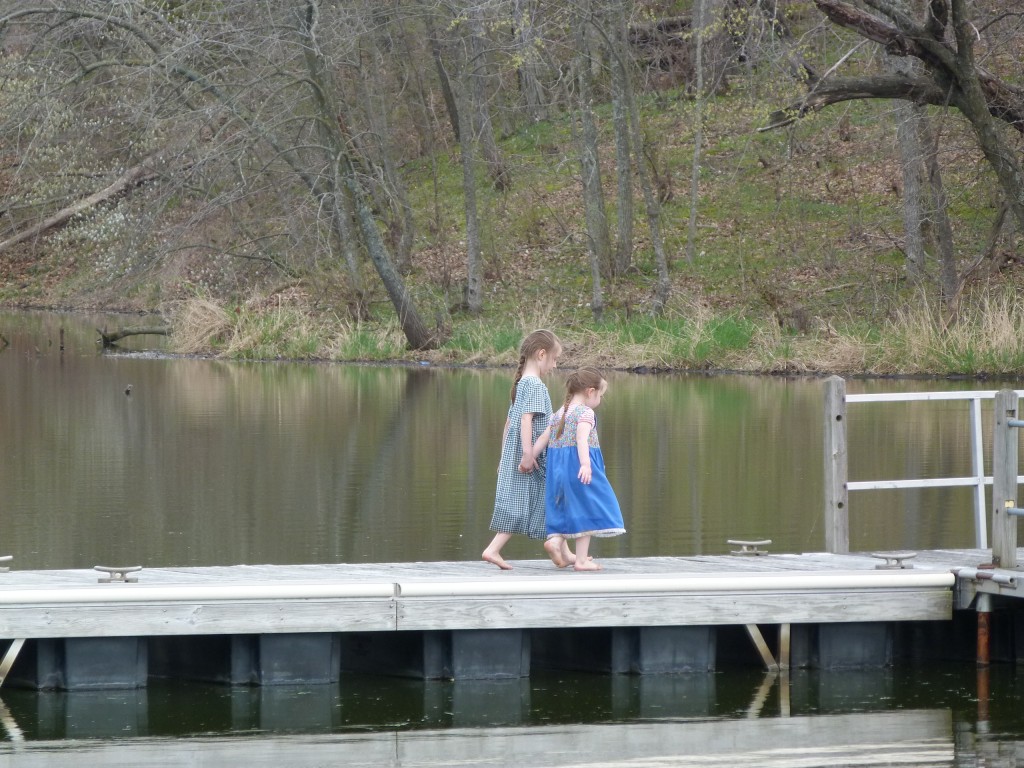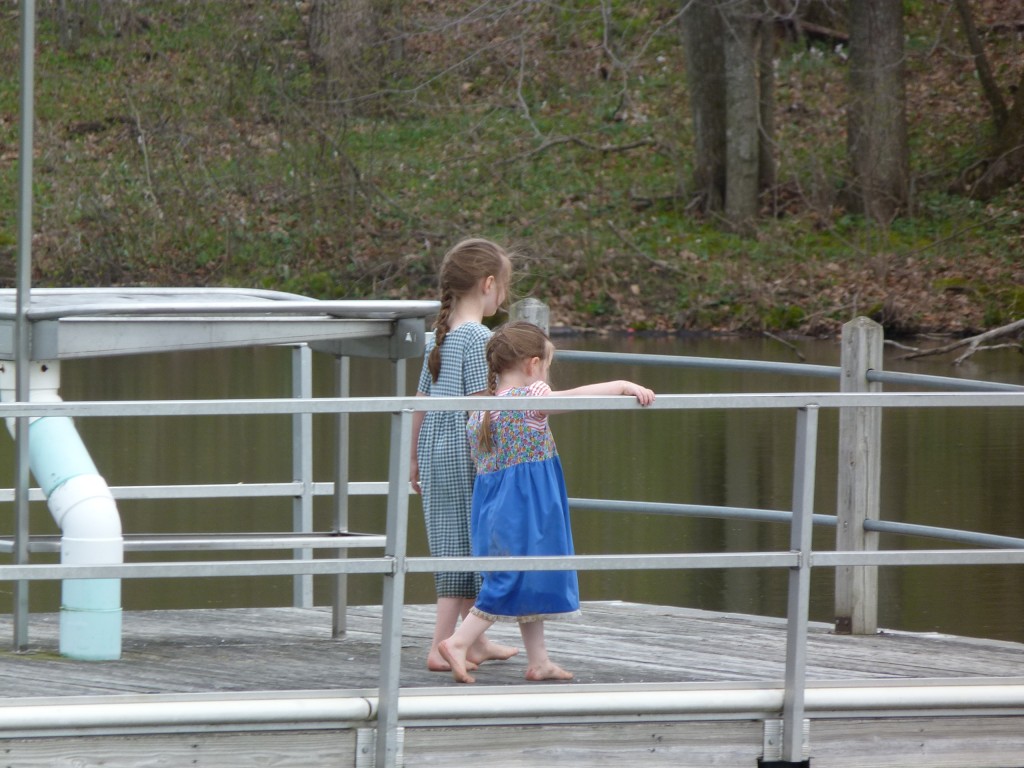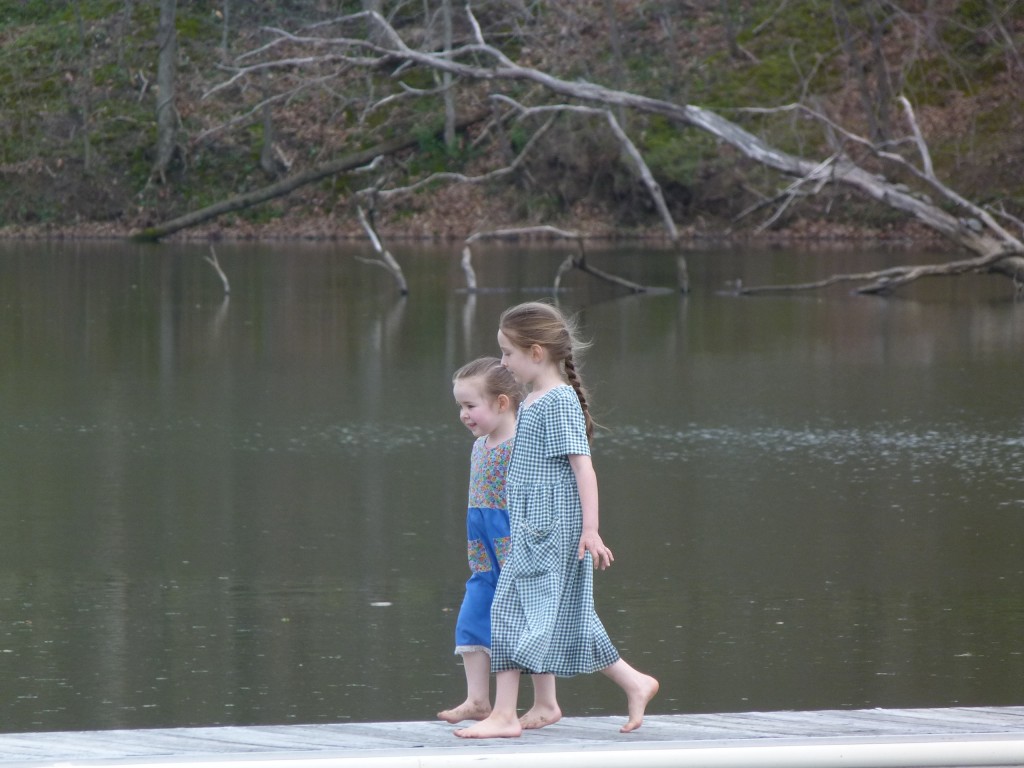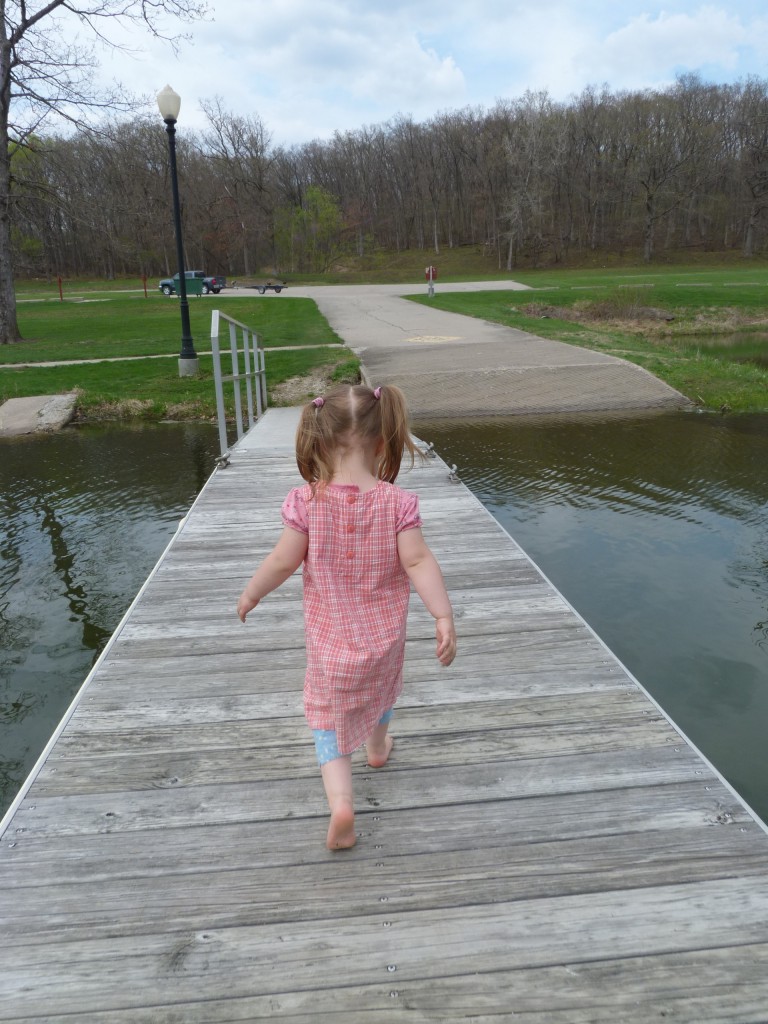Have you been impatiently waiting for the monthly poem from my mom? No, we have not forgotten. Here it is, just in time to help you remember the death and life of Christ.
God bless you as you read Mom’s poem and meditate on Christ.
I remember as a young girl, lying on the grass, gazing at the immense blue summer sky above me, and trying to grasp in the “grain of sand” that was my mind, the concept of eternity. As the clouds moved lazily overhead I pondered the puzzle of eternity past and eternity future, tried to envision the vast expanses of “time” implied, and wondered which would be more irrational, that God should have never begun—how could that be!—or that He should have a beginning—but then how and why could He have begun? I would try to stretch my mind across the eons of eternity from past to future until I felt my brain would explode.
G. K. Chesterton said that “poetry is sane because it floats easily in an infinite sea; reason seeks to cross the infinite sea… the result is mental exhaustion. To accept everything is an exercise, to understand everything a strain. The poet desires… a world to stretch himself in… asks only to get his head into the heavens… the logician… seeks to get the heavens into his head. And it is his head which splits.”
The Scriptures tell us it is “by faith we understand that the worlds were framed by the word of God…not…of things which are visible” (Heb. 11:3, NKJV, italics added).
I was nearing fifty years of age when I wrote the following poem about Christ’s time on earth, and my brain felt no more adequate then of grasping the puzzle of Christ’s work of salvation than it was earlier with the concept of eternity.
The puzzle: Did Jesus come to live or to die for us? His death was only efficacious because of His Resurrection and because of His perfect life. His life alone could not have saved us. He needed a body for the very purpose of dying for us. Remission of sin demands blood shed, a death, a sacrifice.
Romans 5:1 says we are “justified by faith” in Him “who was delivered up [to death] because of our offenses, and was raised because of our justification” (Rom. 4:25, NKJV, italics added).
Oh, the depth of the riches both of the wisdom and knowledge of God! How unsearchable are His judgments and unfathomable His ways! (Rom. 11: 33, NASB)
In humble faith I celebrate and trust in the life and death and resurrection of my Risen Lord and Saviour as all-sufficient for my eternal salvation!
—Elaine Gingrich, March 1, 2016
THIRTY-THREE YEARS: A LIFE
He came to die, but first He came to live.
Not as some faceless, flat protagonist
Who dies in a pale story, never missed
By readers. No, our captured minds would give
The world to know this Man. The finest sieve
Can catch no fault in Him. Go down the list
From “healed a leper” to “by traitor kissed,”
Then watch Him die unjustly, yet forgive.
Here was a man to tower above men,
With strength to calm the stormy Galilee,
With touch more tender than a baby’s sigh.
Here was a man deserves to live again,
A man to love! We turn the page to see
The script. He lives! But first He came to die.
—Elaine Gingrich, May 2, 2000
While this was not her intent, Mom’s insight about the need to connect the life and the death of Christ has been the subject of some recent discussion in scholarly circles.
N.T. Wright, for example, wrote a book called How God Became King: The Forgotten Story of the Gospels. Wright argues that evangelicals and other confessional Christians, influenced by the pattern of the ancient creeds, have tended to emphasize the virgin birth and the cross of atonement while skipping over the life of Christ with his radical kingdom teachings. Liberal theologians, however, influenced by post-Enlightenment critical scholarship and embarrassed by the miraculous elements of Jesus’ birth and death, have emphasized the exemplary power of his human life.
But true Christianity needs both—the kingdom teachings and life of Jesus on the one hand, and also his miraculous, saving death and resurrection. In Wright’s words, we need both kingdom and cross. (While I have not read this book, I have listened about three times to this lecture Wright gave on the same topic. Highly recommended.)
Wright is a scholar of the first rank, but his book above is written for a general audience. Pastors have also written on this subject, such as Tim Chester in his 2015 book Crown of Thorns: Connecting Kingdom and Cross. (I have not read this book, but am familiar enough with Chester to feel confident it will be a useful read.)
I am excited to see scholars and pastors grasp this insight. But understanding exactly how Jesus’ life and death relate together to save us and shape our lives is secondary to simply trusting and following him. So it’s okay if you identify with what Mom said after I shared some of the above with her:
You can develop the deep debates and I will stick to the simpler faith foundation. 🙂
I am deeply grateful to my mother for helping to keep my faith foundation firm, both in my youth and to this day.
For the rest of the poems in this monthly series, see here.
And if you enjoyed this poem, leave a comment here for Mom, or send her an email at ![]() . Thanks!
. Thanks!





